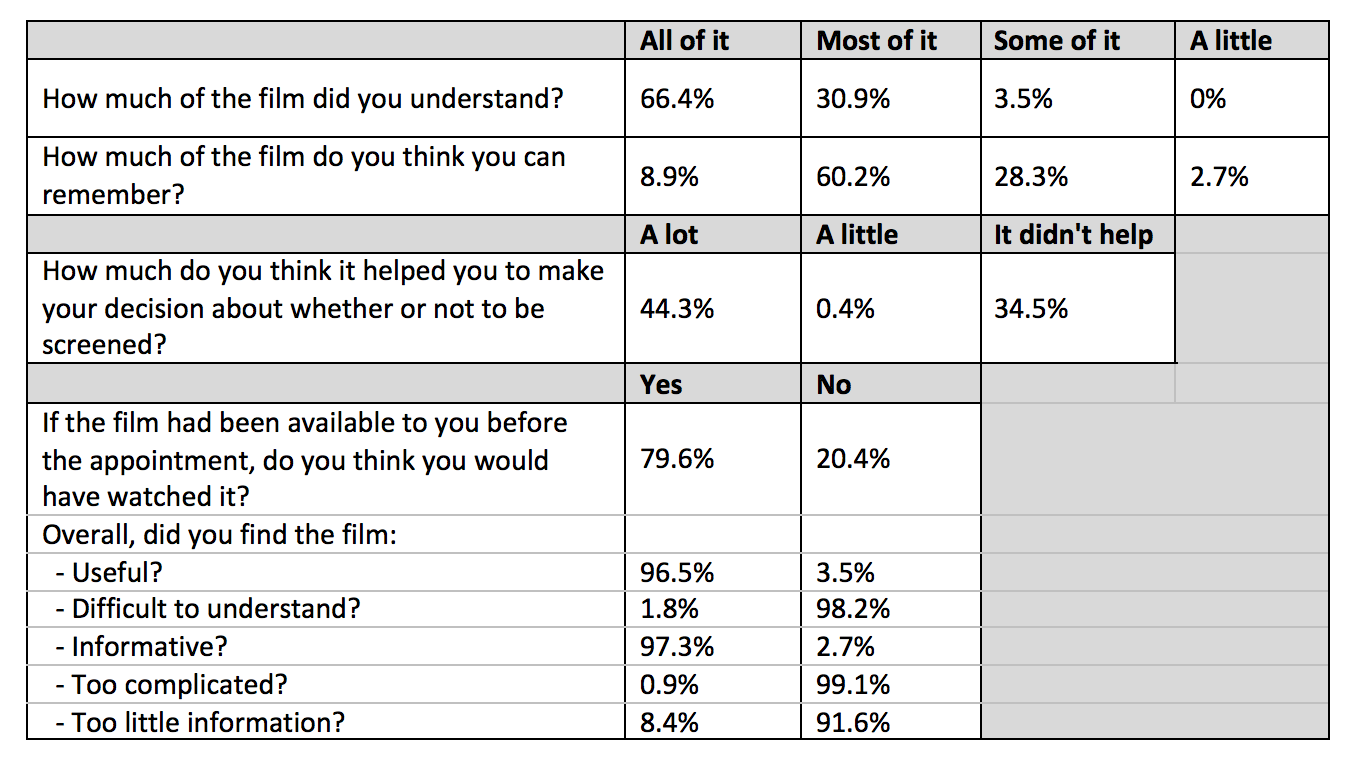Virtual Library
Start Your Search
Carolyn Horst
Author of
-
+
P2.11 - Screening and Early Detection (Not CME Accredited Session) (ID 960)
- Event: WCLC 2018
- Type: Poster Viewing in the Exhibit Hall
- Track:
- Presentations: 1
- Moderators:
- Coordinates: 9/25/2018, 16:45 - 18:00, Exhibit Hall
-
+
P2.11-29 - Impact of an Information-Film to Promote Informed Decision-Making in Individuals Taking Part in a Lung Cancer Screening Demonstration Pilot (ID 12757)
16:45 - 18:00 | Author(s): Carolyn Horst
- Abstract
Background
Lung cancer screening by Low Dose CT (LDCT) is underway in the United States, where a shared decision-making process is mandated for insurer funding. The potential harms of screening are complex and difficult to communicate. Participants do not always read written materials and audio-visual aids have been shown to improve informed decision-making in other areas of medicine. There are limited studies on the use of decision aids in lung cancer screening.
a9ded1e5ce5d75814730bb4caaf49419 Method
A five-minute information-film was made to explain the benefits and risks of lung cancer screening. Qualitative research informed the content and format to make it accessible for individuals of varying demographic and educational backgrounds. A sub-sample of participants (n=229) from a lung cancer screening pilot were randomised to watch the film and read a written information booklet (Group A) or read the booklet alone (Group B). Objective and subjective knowledge of the risks and benefits of screening were assessed before and after the intervention, and again after discussion with a heath care professional, when decisional conflict and satisfaction were also assessed.
4c3880bb027f159e801041b1021e88e8 Result
120 and 109 participants were randomised to groups A and B respectively. There was a statistically significant improvement in subjective and objective knowledge scores post-administration of the intervention in both groups (p<0.001). In a multivariate analysis adjusted for educational level and baseline knowledge score, post interventional scores were independently associated with film group (p=0.036). There were no group differences in decisional conflict or satisfaction, or in subsequent attendance for LDCT. Participants’ views on the acceptability of the film are presented in table 1.
Table 1: Feedback and acceptability of information film
8eea62084ca7e541d918e823422bd82e Conclusion
The information-film was well-accepted and increased knowledge scores more than a written booklet alone, without raising decisional conflict or reducing attendance for LDCT.
6f8b794f3246b0c1e1780bb4d4d5dc53


